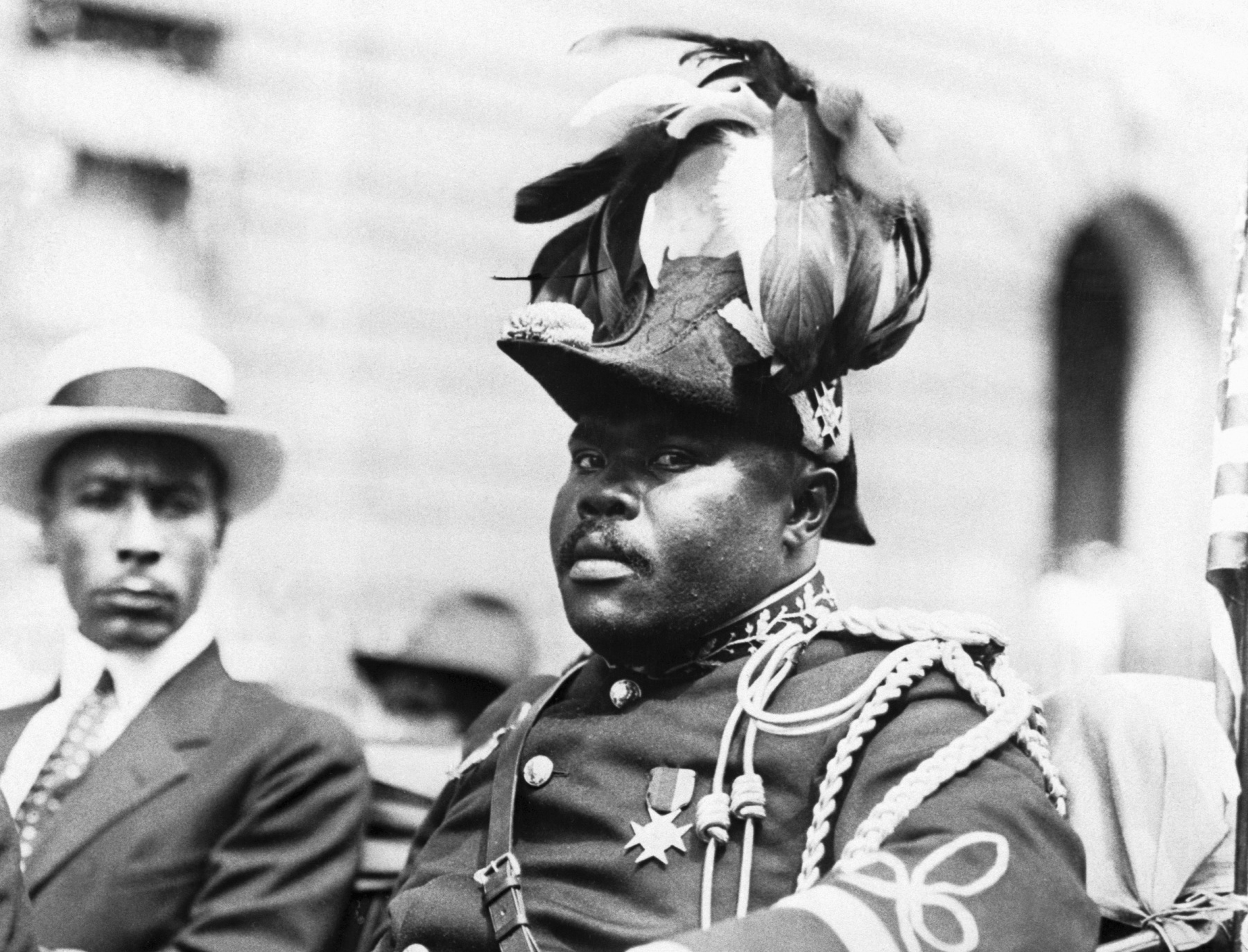In the 1920s, Marcus Mosiah Garvey was the most famous black man on the planet. The Jamaican-born black nationalist led the Universal Negro Improvement Association (UNIA), a mass movement of working-class black Americans aimed at freeing them from the subjugation of American and European imperial powers. He aimed to start a black renaissance and a new African empire.
Marcus Garvey was a disrupter who delighted black people and terrified the authorities who schemed to neuter his power and eventually imprison him in 1925 for mail fraud. After his death in 1940, the story of Garvey was primarily written from the perspective of his enemies but the petitions for him to be exonerated never ceased. Many of us assumed Garvey would be pardoned by Obama but he disappointed. Instead, this week, Joe Biden was the one to pardon Garvey.
Garvey’s mail fraud charge stemmed from when, as the head of the UNIA, he launched a shipping line, the Black Star Line. The company quickly floundered. Garvey was charged with advertising, through the US mail service, shares for ships that hadn’t been bought yet. Garvey was only guilty of naivety. He would later complain: ‘I gave everyone a chance and everyone fleeced the Black Star Line.’ He spent two years at the Atlanta Federal Penitentiary before he was released and deported back to Jamaica.
Garvey, a silver-tongued orator, had migrated to the US in 1916 and soon after founded the UNIA movement. From soapboxes at Harlem’s Speakers Corner, Garvey initially made his name telling black Americans not to enlist when Woodrow Wilson brought America into the first world war, ‘to make the world safe for democracy.’ Garvey argued that was all very well but how about making ‘Georgia safe for the black man first.’
With impassioned speeches that could be heard a block away, Garvey tapped into the dreams and aspirations of a downtrodden people. To his ecstatic followers Garvey was second only to God.
Within a few years, UNIA membership grew to several hundred thousand, with branches throughout America. The organisation’s newspaper, the Negro World, a valuable platform for Garvey’s transcribed speeches, served to recruit new members, as did its glamorous parades. Black-and-white photos capture Garvey triumphantly leading processions in a magnificent open-topped sedan wearing Victorian military regalia and a plumed helmet.
Garvey was a great showman and the founding of a shipping line for global African trade was the pinnacle of his vision. Under his plan, any black person with five dollars would be able to buy a certificate in the Black Star Line, and they did with unbridled enthusiasm in their thousands.
Garvey frightened figures like J. Edgar Hoover but he also terrified black leaders such as the renowned scholar W.E.B. Du Bois at the National Association for the Advancement of Colored People (NAACP). Du Bois watched with horror the rise of a man he considered a pompous buffoon and demagogue, who astonishingly had captured the imagination of black Americans and was leading them to folly.
This folly, in the eyes of Du Bois, was Garvey’s Back to Africa scheme. Garvey, now heralded as the ‘Black Moses’, planned to buy huge swathes of land in Liberia so his followers could return to the African motherland. Ultimately, the scheme faltered; his ships proved unseaworthy and the Liberian authorities eventually leased the land designated for the UNIA to the Firestone Rubber Company instead.
It’s doubtful whether Garvey truly imagined a mass migration of black Americans to the African continent. Indeed, even as Garvey was promoting the Back to Africa campaign and proclaiming himself the provisional president of Africa, he was applying for a US passport.
Garvey was a man of contradictions and the eventual failure of the Black Star Line was amplified by his enormous misstep in visiting the Imperial Wizard of the Ku Klux Klan in 1922 to arrange an accord between them and the UNIA, a decision which infuriated his supporters.
J. Edgar Hoover once described Garvey as ‘a notorious Negro agitator.’ Many of the tactics he trialled against Garvey in the 1920s were then used against civil rights leaders. Early on, FBI agents infiltrated Garvey’s movement and by 1925 Hoover had the Jamaican firebrand just where he wanted him: behind bars.
Earlier his black rivals had mounted a campaign ‘Garvey Must Go’, and some even testified against him in his trial. But it is a testament to Garvey’s persuasiveness that whilst he was in jail, thousands of his supporters, including those he’d allegedly duped into buying tickets in the Black Star Line, petitioned President Calvin Coolidge to release him. Garvey’s incarceration was a travesty which, as intended by Hoover, destroyed the UNIA.
Garvey is seen by many as a divisive figure but Jamaicans saw him as a unifying one. He was made the country’s first national hero after independence in 1962. Over the decades Rastafarians and Reggae stars have channeled Garvey’s philosophies and opinions. Back in 1937, Marcus Garvey met supporters in Nova Scotia and gave a speech that would later be woven by Bob Marley into ‘Redemption Song’: ‘We must emancipate ourselves from mental slavery because whilst others might free the body, none but ourselves can free the mind.’
Marcus Mosiah Garvey’s conviction and imprisonment was a libel against black people. Today, a century later, Garvey is finally free of that stigma. Amen to that.








Comments